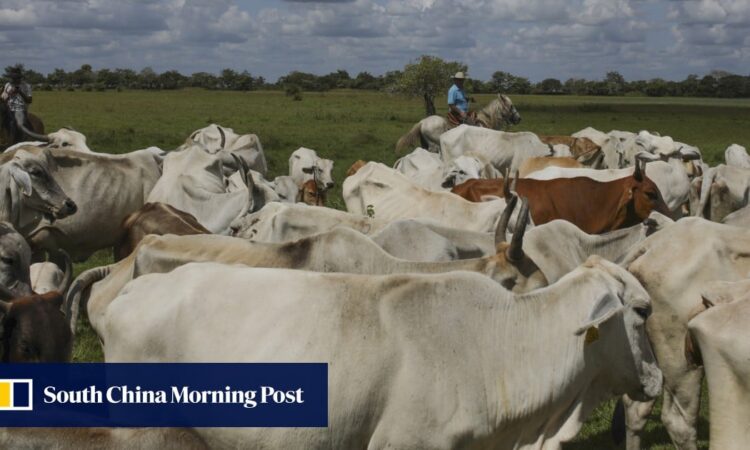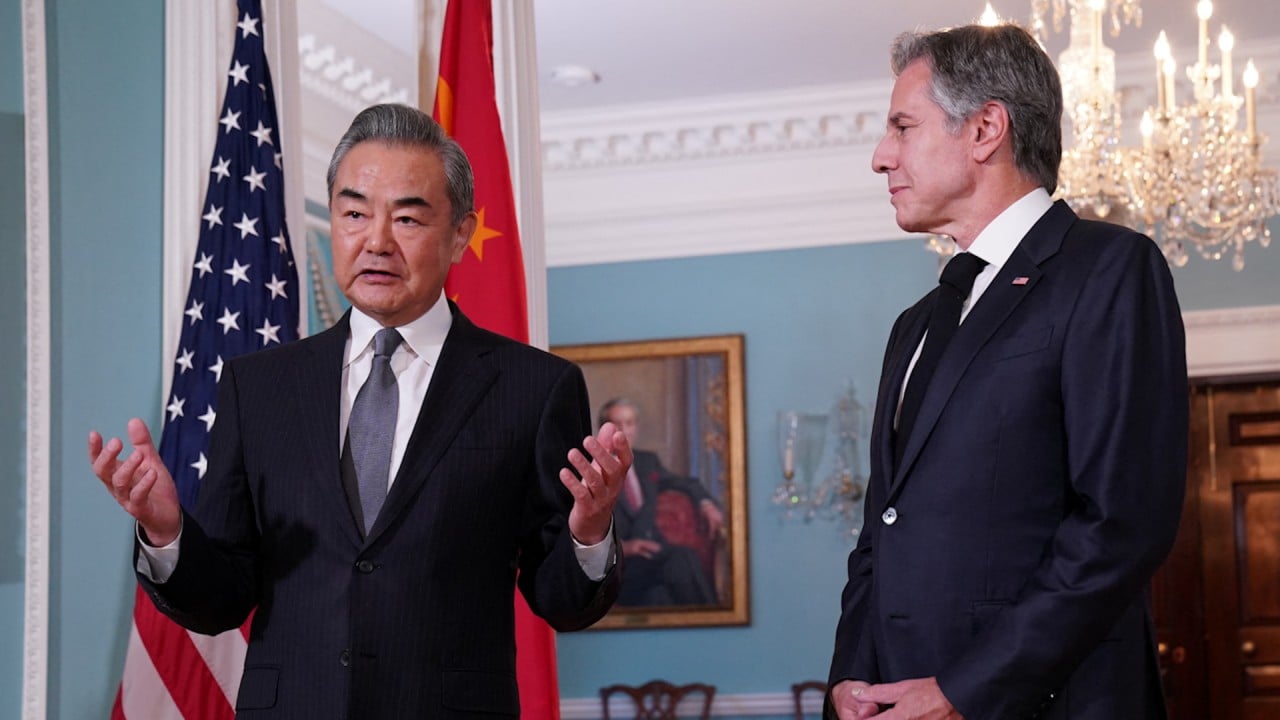China-Colombia steer trade towards cattle, but will US have a cow as Beijing makes Latin American inroads?

Colombia’s all-important cattle industry expects to see a stampede of growth in exports to China following agreements signed between the two sides, and China’s smartphones will find a booming market in the South American country, the Colombian consul general in Hong Kong said this week.
The energised trade ties will deepen China’s foothold in Latin America, according to analysts who point to the region being more historically allied with the United States – its largest trade partner.
Beef exports to China will grow on the back of a bilateral protocol signed in September that covers sanitation measures for exportable farm products, Colombian Consul General Luis Fernando Orozco Barrera told the Post on Tuesday.
Colombia’s cattle industry employs just under a million people, or about 7 per cent of the nation’s workforce, he said. Last year, Colombia exported about 45,000 tonnes of beef worldwide, valued at US$200 million. And as of August this year, its global beef exports in 2023 had totalled 22,000 tonnes worth US$90 million.
“Regarding export projections to China, we expect at least 2,500 tonnes to be exported monthly – close to US$15 million,” he said.

“To give some perspective to the importance of this, keep in mind that … Colombian livestock, in macroeconomic terms, represents 3.3 times more than the coffee sector, and we are the third [largest] global coffee producer,” Orozco said, citing government and industry association data.
Although China already imports beef from countries such as Australia, Brazil and the US, the market can accommodate more, according to Zhao Xijun, a finance professor at Renmin University.
“From a demand standpoint, what we get now doesn’t feed the whole market,” Zhao explained.
Colombia has identified China as the world’s largest beef-importing country, accounting for 25 per cent of the world’s imports, Orozco said.
Colombian President Gustavo Petro also visited Chinese counterpart Xi Jinping in Beijing on October 25, signing 12 economic-cooperation agreements. One concerns the sharing of “planning and guidance” in agriculture for the next five years, Orozco said.
Also last month, the two countries upgraded their bilateral ties to the level of “strategic partnership”, a term that usually means managing relations through special problem-solving and information-exchange frameworks.
For China, Orozco said, Colombia represents a growing market for consumer electronics such as smartphones.
Colombia has seen an economic boom over the past decade, raising the disposable income among many of its 52 million citizens.
In the first quarter of 2023, Xiaomi and Oppo were the No 2 and No 3 smartphone vendors, respectively, in Colombia after South Korea’s Samsung. The two Chinese brands took a combined 28 per cent market share between January and March, according to market research firm Counterpoint.
After Huawei smartphone leap, Beijing sets lofty goals on advanced manufacturing
After Huawei smartphone leap, Beijing sets lofty goals on advanced manufacturing
“The tech industries, particularly computers and mobile phones, play key roles in the bilateral trade exchange,” Orozco said. Colombia, he noted, has 71 million mobile subscribers.
“All of this makes Colombia very attractive if we also take into account that we are about to conduct the public bid for 5G networks in the country in 2024,” he added.
Total two-way trade between the countries came to US$22.64 billion last year, with China exporting US$15.6 billion of that total.
Because of geographic proximity and old alliances, Colombia – like much of Latin America – has traditionally tilted toward the US as its chief source of business.
But China has already signed a free-trade pact with Chile and is pursuing another with a group of South American nations that include Argentina and the region’s biggest economy, Brazil. China ranked as Colombia’s No 2 trading partner last year, behind only the US, following record import-export receipts.
The 12 deals signed with China will help Colombia “diversify trade opportunities by building alternatives to its traditional and long-term, nearly exclusive partnership with the US as the major trading partner”, said Enrico Cau, an Asia-specialised associate researcher at the Taiwan Strategy Research Association think tank.
That diversification, he said, will give Colombia more clout in negotiating other trade deals.
“From a political perspective, China’s growing influence in the Latin American region seems to mark not only an attempt to diversify trade opportunities, but also the potential necessity to free Latin American countries from the heavy reliance on the US,” Cau said.








